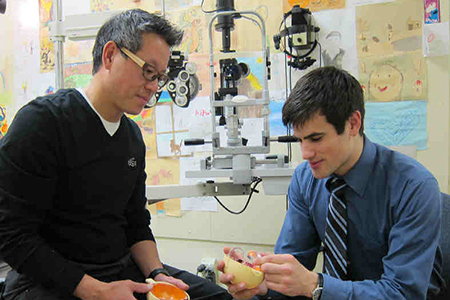THE INCREASE IN POPULARITY OF education as a major on college campuses (currently ranked No. 3) may have something to do with the fact that, despite the state of the economy, there’s a constant demand for teachers at all grade levels—especially as baby boomers retire and the younger generation steps up to take their place.
Take a look at some of the cool new things happening in education programs across the country and you’ll see even more reasons for the rise in the number of education majors.
WHAT WILL YOU LEARN AS AN EDUCATION MAJOR?
In general, much of your coursework will include classes on teaching methods and basic studies, such as managing a classroom and motivating students to succeed. Yet, depending on your focus area, education courses vary dramatically. While you can still major in the traditional K through 12 grades, there are other options to consider.
Idaho State University, for example, offers an outdoor education major in which students learn how to teach outdoor activities (e.g. a junior high cross-country ski race), lead group activities (e.g. a youth group camping trip), and instruct others on caring for the environment (e.g. “Leave no trace.”). These skills are all critical to becoming educators in environmental learning centers, or wilderness skills instructors at our national parks and centers. In a wilderness survival skills course, according to the class syllabus, students gain the “knowledge and skills necessary to survive a 72-hour emergency (summer and fall seasons). Includes signaling, shelter building, hypothermia, survival kits, fire building, direction finding and desert hazards.” It’s just you and your survival instincts for class in the wild. Fun!
Learning how to incorporate the intricate world of technology into classrooms has become popular—and necessary—among education majors and education programs, some of which offer education technology degrees. At Simmons College in Boston, Mass., education majors can take an educational tech and software course, which examines the role of technology as a teaching and learning tool and teaches students to “develop lessons using the Internet.”
Most education programs also include one semester of student teaching in the field of your choice, which will be an important step toward your first job. Before you graduate, you’ll use your own lesson plans and classroom management skills in an actual classroom setting, and the teacher will provide you with valuable feedback and guidance to better prepare you for the real thing.
IS TEACHING RIGHT FOR YOU?
While teachers come in all different shapes and sizes, they do share some key characteristics, particularly a love of learning. If you are considering becoming a teacher, start by asking yourself a couple of questions:
–Do you feel passionate about a subject?
–Do you enjoy sharing knowledge with others?
Think about the skills required and the passion your teachers possess, then decide if this path is right for you. Talk to your teachers about teaching—why they chose it and what they love about it.
Whichever path you choose—wilderness, technology, first grade or 10th—a degree in education can open a world of discovery and opportunity!



